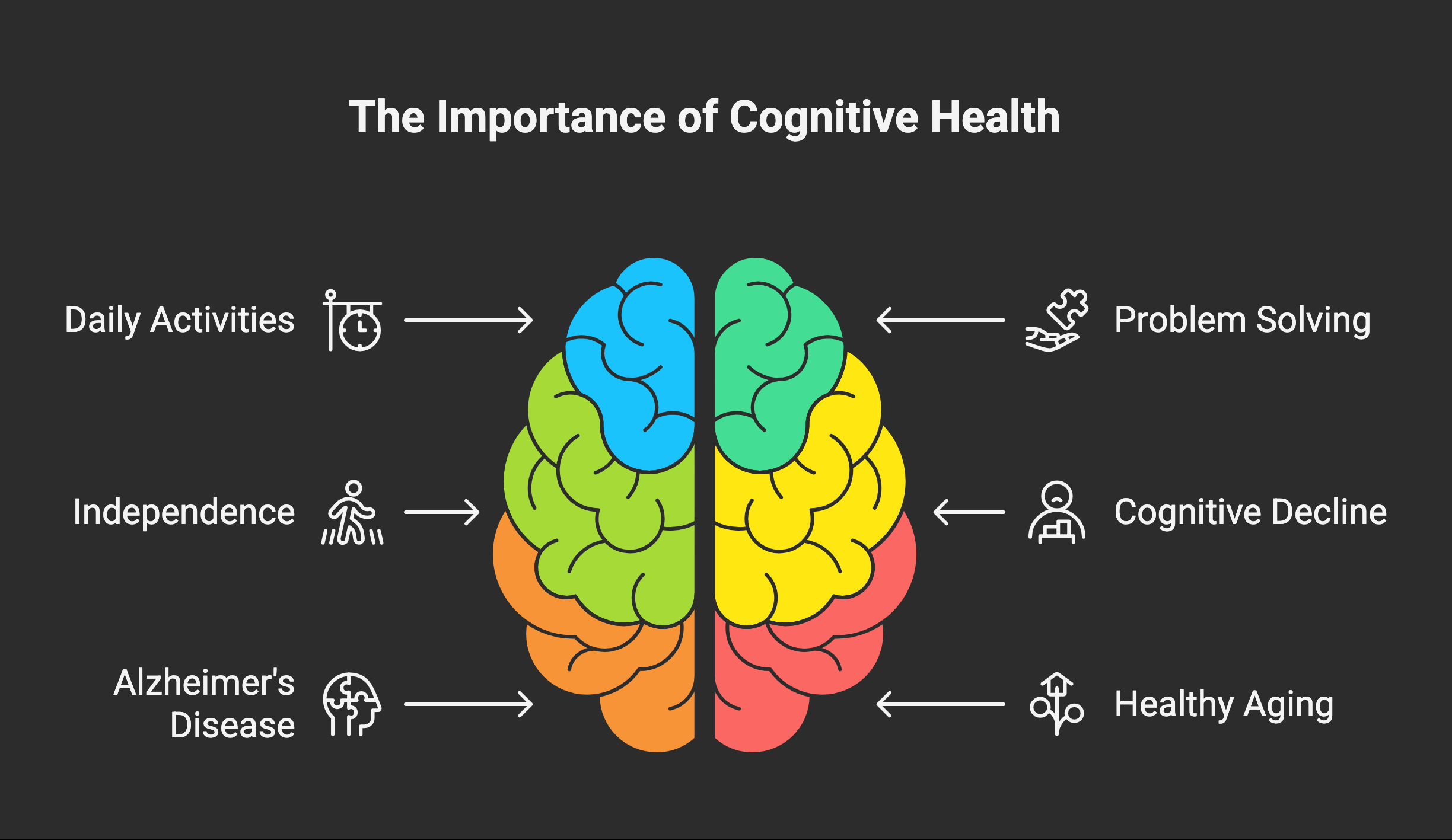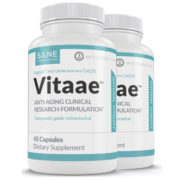Cognitive Health: Building a Stronger Future for Your Brain
Cognitive health is at the center of how we think, learn, remember, and interact with the world. While conversations about wellness often focus on diet, fitness, or weight, the reality is that brain health is equally critical. At SANEMD, we emphasize the importance of protecting and improving cognitive health as part of a broader approach to total well being. Just as we safeguard the body through regular exercise and nutrition, our brain deserves the same level of care to ensure it functions at its best throughout life.
Why Cognitive Health Matters More Than Ever
Cognitive abilities allow a person to manage daily activities, solve problems, and maintain independence. When cognitive decline occurs, even simple tasks can become challenging, leading to frustration, disability, and in some cases dementia. With Alzheimer’s disease affecting millions worldwide and cases rising as populations age, investing in a healthy brain is not optional—it’s essential for healthy aging.

Cognitive health important factors include not only genetics but also lifestyle choices. Research consistently shows that risk factors such as high blood pressure, diabetes, depression, and even lack of social interaction all influence brain structure and function. This makes cognitive health research one of the most exciting areas of modern medicine because it proves that improving cognitive health is possible at any stage of life.
Understanding Cognitive Decline and Its Early Signs
One of the first signs of cognitive decline may be subtle memory loss or difficulty concentrating. For some, this is described as subjective cognitive decline—an awareness that something feels different even if symptoms are mild. While not always linked to dementia, subjective cognitive decline can indicate early changes that deserve attention.
Mild cognitive impairment sits between normal aging and dementia. It includes symptoms such as forgetfulness, challenges in problem solving, or reduced thinking skills. While it does not always progress to Alzheimer’s disease, recognizing mild cognitive impairment early allows for proactive steps that can yield results and support long-term brain functioning.
The Role of Lifestyle in Brain Health
A healthy brain thrives on the same foundation that supports physical health: good nutrition, physical activity, social interaction, and sleep. These equal parts of a cohesive plan create what researchers call a cognitive reserve—the brain’s ability to compensate for age-related changes or damage from brain injuries.
- Exercise and physical activity improve blood flow to the brain, reduce risk factors like heart disease and high blood pressure, and enhance overall function. Even a morning walk can support both body and mind.
- A plant based diet rich in antioxidants, omega-3s, and more fiber protects against inflammation and supports brain structure. Simply eating whole, nutrient-dense foods can be one of the most effective tools in protecting against cognitive impairment.
- Good quality sleep is non-negotiable. Lack of sleep is strongly tied to memory loss, anxiety, and depression. Prioritizing rest allows the nervous system to repair and strengthens the brain’s ability to process information.
- Social contacts and mental stimulation work such as reading, puzzles, or learning a new skill help keep the mind active and engaged, reducing symptoms of stress and supporting long-term mental health.
Risk Factors That Threaten Cognitive Function
When it comes to dementia and cognitive impairment, several risk factors are within our control. High blood pressure, diabetes, smoking, and unmanaged stress all damage blood vessels, which compromises brain functioning. Chronic stress in particular accelerates cognitive decline, making stress management a cornerstone of prevention. Mental activity, daily activities, and other healthy habits all contribute to healthy aging when practiced consistently.
Brain injuries also play a significant role in increasing risk. Protecting the head during sports, wearing seatbelts, and minimizing falls in older adults are practical steps that safeguard long-term brain health. Recognizing that memory loss is not always a normal part of aging but may signal underlying health conditions allows individuals to take proactive action.
Building Cognitive Reserve: Your Brain’s Safety Net
Cognitive reserve is the brain’s backup system. Just as physical training strengthens muscles, mental activity and social interaction strengthen pathways in the brain. People with stronger cognitive reserve are less likely to experience severe symptoms of dementia even if changes in brain structure occur. That is why brain healthy behaviors practiced consistently over years create resilience.
Pro Tip: Combine physical activity with mental activity. For example, take a morning walk with a friend while discussing a new book. This equal parts movement, social interaction, and mental stimulation can yield results far greater than doing each activity alone.
Nutrition, Stress, and the Power of Daily Choices
Diet plays a decisive role in cognitive health. Simply eating balanced meals with more fiber and plant based foods supports good physical health and reduces risk factors for both heart disease and diabetes. Healthy habits in nutrition are inseparable from mental health and brain functioning.
At the same time, stress cannot be ignored. Chronic stress raises blood pressure, harms the nervous system, and accelerates symptoms of cognitive decline. Learning to manage stress through relaxation techniques, exercise, and social contacts supports both cognitive abilities and emotional well being. Stress management is one of the six cornerstones of healthy aging, alongside sleep, exercise, diet, social interaction, and mental stimulation work.
Cognitive Health and Alzheimer’s Disease
Alzheimer’s disease remains the leading cause of dementia worldwide, but it is not the only one. Vascular dementia, often linked to blood pressure and diabetes, also affects millions. Cognitive health research shows that early recognition of subjective cognitive decline and mild cognitive impairment provides opportunities for intervention.
While there is no cure yet, lifestyle choices, medications, and support systems can delay progression and improve quality of life. Mental activity, regular exercise, and good physical health all contribute to slowing symptoms. Importantly, cognitive impairment is not inevitable—healthy aging can protect against the most devastating effects.
Putting It All Together: A Cohesive Plan for Lifelong Brain Health
Maintaining cognitive health requires a cohesive plan that integrates exercise, plant based diet, sleep, and social interaction. This is not about temporary fixes but about lifelong healthy habits that strengthen both body and brain. By focusing on the six cornerstones, each person can take control of their own health and build resilience against risk factors that contribute to dementia, disability, and memory loss.
At SANEMD, we believe improving cognitive health is not only possible but within reach for everyone. That’s why we developed formulations like Vitaae, specifically designed to support brain health, reduce cognitive decline, and enhance mental clarity. By combining science-backed nutrients with lifestyle strategies, Vitaae offers an opportunity to strengthen the brain’s ability to age well.
Final Word: Protecting Your Brain for Life
Cognitive health is the foundation of independence, creativity, and well being. Protecting it means committing to regular exercise, good quality sleep, stress management, mental activity, and a plant based diet that supports both body and brain. Social contacts and healthy habits transform these practices into a lifestyle that supports long-term function.
Dementia and Alzheimer’s disease are not inevitabilities. By addressing risk factors, building cognitive reserve, and following a cohesive plan, we can protect brain functioning and support healthy aging. Cognitive decline may be common, but it is not a normal part of life that must be accepted without action.
At SANEMD, our mission is to empower people with real solutions. Vitaae is more than a supplement—it’s part of a strategy to protect the brain, enhance cognitive abilities, and sustain mental health. If you’re serious about supporting your future, now is the time to act. Start building your cognitive reserve today and give your brain the protection it deserves.














